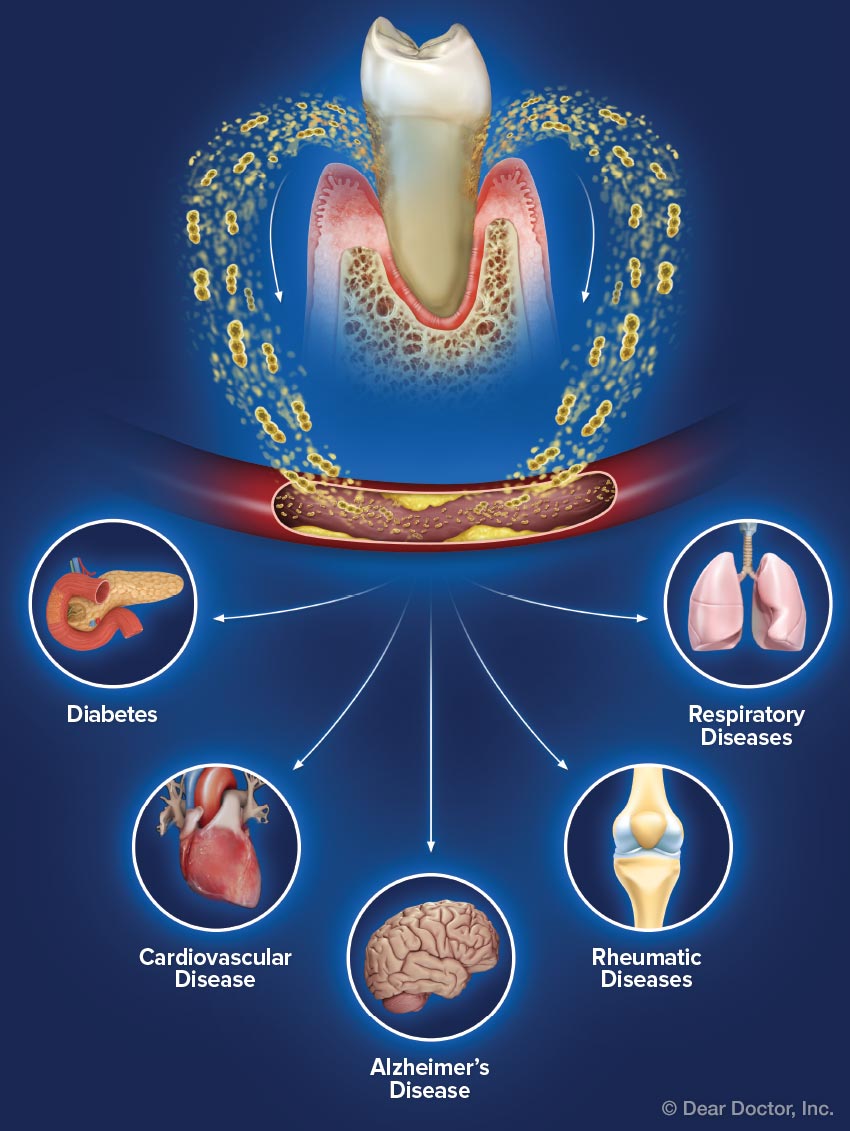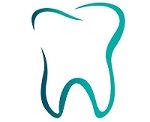The Link Between Oral Infections and Systemic Health
Did you know that your mouth can be a gateway to your overall health? The link between oral infections and systemic health is as strong as a chain connecting various parts of your body.
Neglecting your oral hygiene can have serious consequences beyond just tooth decay and gum disease. Studies have shown that oral infections can contribute to the development of heart disease, diabetes, cancer, respiratory conditions, and even pregnancy complications.
It’s important to understand the impact of oral health on your entire body and take proactive steps to maintain good oral hygiene. By doing so, you can safeguard your overall well-being and ensure a healthier future.
Key Takeaways
– Oral infections, such as gum disease and tooth decay, can increase the risk of heart disease.
– Poor oral health, such as gum disease, can make it harder to control blood sugar levels in individuals with diabetes.
– Oral infections, such as gum disease, may increase the risk of developing certain types of cancer.
– Oral infections can increase the risk of pneumonia and worsen respiratory conditions such as asthma and COPD.
Oral Infections and Heart Disease
If you have any oral infections, they can increase your risk of developing heart disease. It may sound surprising, but the connection between oral health and cardiovascular health is well-established. When you have an infection in your mouth, such as gum disease or tooth decay, harmful bacteria can enter your bloodstream and travel to other parts of your body, including your heart. These bacteria can cause inflammation and damage to the blood vessels, increasing the risk of heart disease.
Research has shown that individuals with poor oral health are more likely to have heart problems. In fact, studies have found that people with gum disease are twice as likely to develop heart disease compared to those with healthy gums. The inflammation caused by oral infections can lead to atherosclerosis, a condition where plaque builds up in the arteries, restricting blood flow to the heart. This can ultimately result in heart attacks or strokes.
It is essential to maintain good oral hygiene to reduce your risk of developing heart disease. Remember to brush your teeth at least twice a day, floss daily, and visit your dentist regularly. By keeping your mouth healthy, you can also protect your heart and overall systemic health.
Don’t underestimate the importance of oral health in maintaining a healthy heart.
The Role of Oral Health in Diabetes
Maintaining good oral health is crucial for individuals with diabetes. Here are four reasons why:
1. Control blood sugar levels: Poor oral health, such as gum disease, can make it harder to control blood sugar levels. Inflammation caused by gum disease can lead to insulin resistance, making it more difficult for the body to regulate blood sugar. By taking care of your oral health, you can help maintain stable blood sugar levels.
2. Prevent complications: Diabetes already puts you at a higher risk for complications such as heart disease, kidney disease, and eye problems. Poor oral health can further increase this risk. Infections in the mouth can spread to other parts of the body, exacerbating existing health issues. By maintaining good oral hygiene, you can reduce the risk of developing complications.
3. Improve overall well-being: Oral health has a direct impact on your overall well-being. Painful dental problems can affect your ability to eat, speak, and sleep comfortably. By taking care of your oral health, you can improve your quality of life and minimize discomfort.
4. Early detection of diabetes: In some cases, oral health issues can be an early sign of diabetes. Dentists can detect signs of diabetes during routine dental check-ups, such as gum disease or oral infections. By addressing these issues promptly, you can seek early treatment for diabetes and manage it effectively.
Taking care of your oral health is essential for managing diabetes and maintaining overall well-being. Make sure to brush and floss regularly, visit your dentist regularly, and report any oral health concerns promptly.
Linking Oral Infections to Cancer
Did you know that oral infections can actually increase your risk of developing certain types of cancer? It’s true. Studies have shown a potential link between oral infections, such as gum disease, and an increased risk of developing cancers of the oral cavity, throat, and even the pancreas.

Maintaining good oral health isn’t only important for your smile, but it may also play a role in reducing your risk of cancer.
Oral Infections Causing Cancer
Oral infections can potentially lead to the development of cancer. The presence of certain oral pathogens and chronic inflammation in the mouth has been linked to an increased risk of various types of cancer.
Here are four ways in which oral infections can contribute to the development of cancer:
1. Human papillomavirus (HPV): Oral infections caused by HPV, particularly HPV-16, have been strongly associated with an increased risk of oral and throat cancers.
2. Chronic inflammation: Prolonged inflammation due to untreated oral infections can lead to DNA damage and mutations, increasing the risk of cancer development.
3. Immune suppression: Oral infections can weaken the immune system, making it less effective at fighting off cancer cells and allowing them to grow and spread.
4. Microbial toxins: Some oral pathogens release toxins that can damage DNA and disrupt cellular processes, potentially leading to the development of cancer.
It is crucial to maintain good oral hygiene and seek prompt treatment for any oral infections to reduce the risk of cancer.
Oral Health and Cancer
To reduce your risk of cancer, it’s important to prioritize good oral hygiene and promptly treat any infections in your mouth. The link between oral infections and cancer is a topic of growing interest in the field of medical research.
Studies have found that chronic oral infections, such as periodontitis, can increase the risk of developing certain types of cancer, including oral, throat, and pancreatic cancer. The exact mechanisms behind this link are still being studied, but it’s believed that the chronic inflammation caused by oral infections plays a role in the development and progression of cancer cells.
Additionally, certain bacteria commonly found in the mouth, such as Porphyromonas gingivalis, have been implicated in promoting cancer growth.
Maintaining good oral health and seeking prompt treatment for any infections can help reduce your risk of developing cancer.
Oral Infections and Respiratory Conditions
When it comes to your respiratory health, a link has been found between oral infections and various conditions. Taking care of your oral health isn’t only important for a beautiful smile, but it may also play a role in preventing respiratory issues.
Here are four ways in which oral infections can affect your respiratory system:
1. Increased risk of pneumonia: Oral bacteria can be inhaled into the lungs, leading to infection and an increased risk of developing pneumonia.
2. Exacerbation of existing respiratory conditions: Oral infections can worsen conditions such as asthma and chronic obstructive pulmonary disease (COPD), leading to more frequent and severe symptoms.
3. Respiratory infections: Poor oral health can weaken the immune system, making you more susceptible to respiratory infections such as bronchitis and sinusitis.
4. Aspiration pneumonia: If you have difficulty swallowing due to oral infections, you may inhale food particles or saliva into your lungs, increasing the risk of aspiration pneumonia.
Maintaining good oral hygiene, including regular brushing, flossing, and dental check-ups, is essential for preventing oral infections that can potentially impact your respiratory health.
Don’t underestimate the importance of oral health in maintaining overall well-being.
Oral Health and Pregnancy Complications
Pregnancy can be an exciting time, but it also comes with its own set of health concerns.
One important aspect of your health to consider during pregnancy is your oral health. It has been found that gum disease during pregnancy increases the risk of preterm birth.
Pregnancy and Gum Disease
During pregnancy, it’s essential to maintain good oral health to reduce the risk of pregnancy complications. Here are four important points to consider:
1. Hormonal changes during pregnancy can increase the risk of gum disease. It’s crucial to maintain a good oral hygiene routine, including regular brushing and flossing, to prevent gum problems.
2. Untreated gum disease during pregnancy has been linked to various complications, such as preterm birth, low birth weight, and preeclampsia. By addressing gum disease early on, you can help reduce the chances of these complications.
3. Regular dental check-ups are vital during pregnancy to monitor and address any oral health issues. Inform your dentist about your pregnancy so that they can provide the necessary care and advice tailored to your specific needs.
4. Maintaining a healthy diet and lifestyle during pregnancy can also contribute to good oral health. Eating a balanced diet and avoiding sugary snacks can help prevent tooth decay and gum problems.
Preterm Birth Risk
Maintaining good oral health is crucial to reducing the risk of preterm birth and other pregnancy complications. Research has shown a strong link between oral infections, specifically gum disease, and an increased likelihood of preterm births.
Gum disease is caused by the buildup of bacteria in the mouth, which can easily enter the bloodstream and affect the developing fetus. When left untreated, gum disease can lead to inflammation and infection throughout the body, including the uterus. This can trigger a premature birth, putting both the baby and the mother at risk.
In addition to preterm birth, poor oral health during pregnancy has also been associated with gestational diabetes, preeclampsia, and low birth weight. It’s crucial for pregnant women to prioritize their oral health and seek regular dental care to minimize these risks.
Maintaining Good Oral Hygiene for Overall Well-being
To maintain good oral hygiene for overall well-being, it’s important to brush your teeth at least twice a day. Regular brushing helps remove plaque and prevent cavities and gum disease.
In addition to brushing, here are four essential practices to keep your oral health in check:
1. Floss daily: Brushing alone can’t reach the spaces between your teeth where food particles and plaque can accumulate. Flossing helps remove these particles and prevents gum disease.
2. Use mouthwash: Incorporating mouthwash into your oral hygiene routine can further help kill bacteria and freshen your breath. Look for mouthwashes that contain fluoride to strengthen your teeth.
3. Limit sugary foods and beverages: Sugary foods and drinks contribute to tooth decay. By cutting back on these items, you can reduce the risk of cavities and keep your teeth healthy.
4. Schedule regular dental check-ups: Regular visits to your dentist are crucial for maintaining good oral health. Dentists can identify early signs of problems, provide professional cleanings, and offer personalized advice for your dental care.
Frequently Asked Questions
Can Oral Infections Directly Cause Heart Disease?
Oral infections can directly cause heart disease. When bacteria from the mouth enter the bloodstream, they can travel to the heart and cause inflammation in the blood vessels, leading to conditions like atherosclerosis.
This can increase the risk of heart attacks and strokes. It’s important to maintain good oral hygiene and visit your dentist regularly to prevent oral infections and protect your overall systemic health.
How Does Poor Oral Health Contribute to the Development of Diabetes?
Poor oral health can contribute to the development of diabetes in several ways. When you have gum disease or other oral infections, it can lead to chronic inflammation in your body. This inflammation can affect your insulin sensitivity and disrupt the regulation of blood sugar levels, increasing your risk of developing diabetes.
Additionally, untreated oral infections can weaken your immune system, making you more susceptible to infections and chronic diseases like diabetes.
Taking care of your oral health is crucial for overall wellness.
Is There a Specific Type of Cancer That Is Commonly Associated With Oral Infections?
There is a specific type of cancer commonly associated with oral infections. Oral cancer, which affects the mouth and throat, can be caused by persistent oral infections. These infections can lead to the development of malignant cells in the oral cavity, increasing the risk of oral cancer.
It’s important to maintain good oral hygiene and seek prompt treatment for any oral infections to reduce the risk of developing oral cancer. Regular dental check-ups are also crucial in detecting any potential issues early on.
Can Oral Infections Worsen Respiratory Conditions Such as Asthma or Copd?
Oral infections can indeed worsen respiratory conditions like asthma or COPD. When bacteria from the mouth enters the respiratory system, it can trigger inflammation and exacerbate existing respiratory issues. This can lead to symptoms such as difficulty breathing, wheezing, and increased mucus production.
It’s crucial to maintain good oral hygiene and seek dental treatment to prevent the spread of infection and minimize the impact on your respiratory health.
What Are the Potential Risks of Poor Oral Health During Pregnancy and How Can They Be Prevented?
During pregnancy, poor oral health can pose potential risks to both you and your baby. Gum disease, for example, has been linked to preterm birth and low birth weight.
To prevent these risks, it’s important to maintain good oral hygiene. Brush your teeth twice a day, floss daily, and visit your dentist regularly for check-ups and cleanings.
Additionally, maintaining a healthy diet and avoiding sugary foods can also help promote good oral health during pregnancy.
Conclusion
Overall, maintaining good oral hygiene is crucial for your overall well-being.
The link between oral infections and systemic health is evident in various ways, such as the increased risk of heart disease, diabetes, cancer, respiratory conditions, and pregnancy complications.
By taking care of your oral health through regular brushing, flossing, and dental check-ups, you can reduce the chances of developing these serious health issues.
Remember, a healthy mouth leads to a healthier body.

Welcome to my website! My name is Jett Kirkland, and I am a passionate and dedicated Dental Educator with a strong focus on periodontal treatments, oral infections and care, dental laser therapy, and holistic gum health. With years of experience in the dental field, I am committed to providing valuable information and resources to help individuals achieve optimal oral health.
